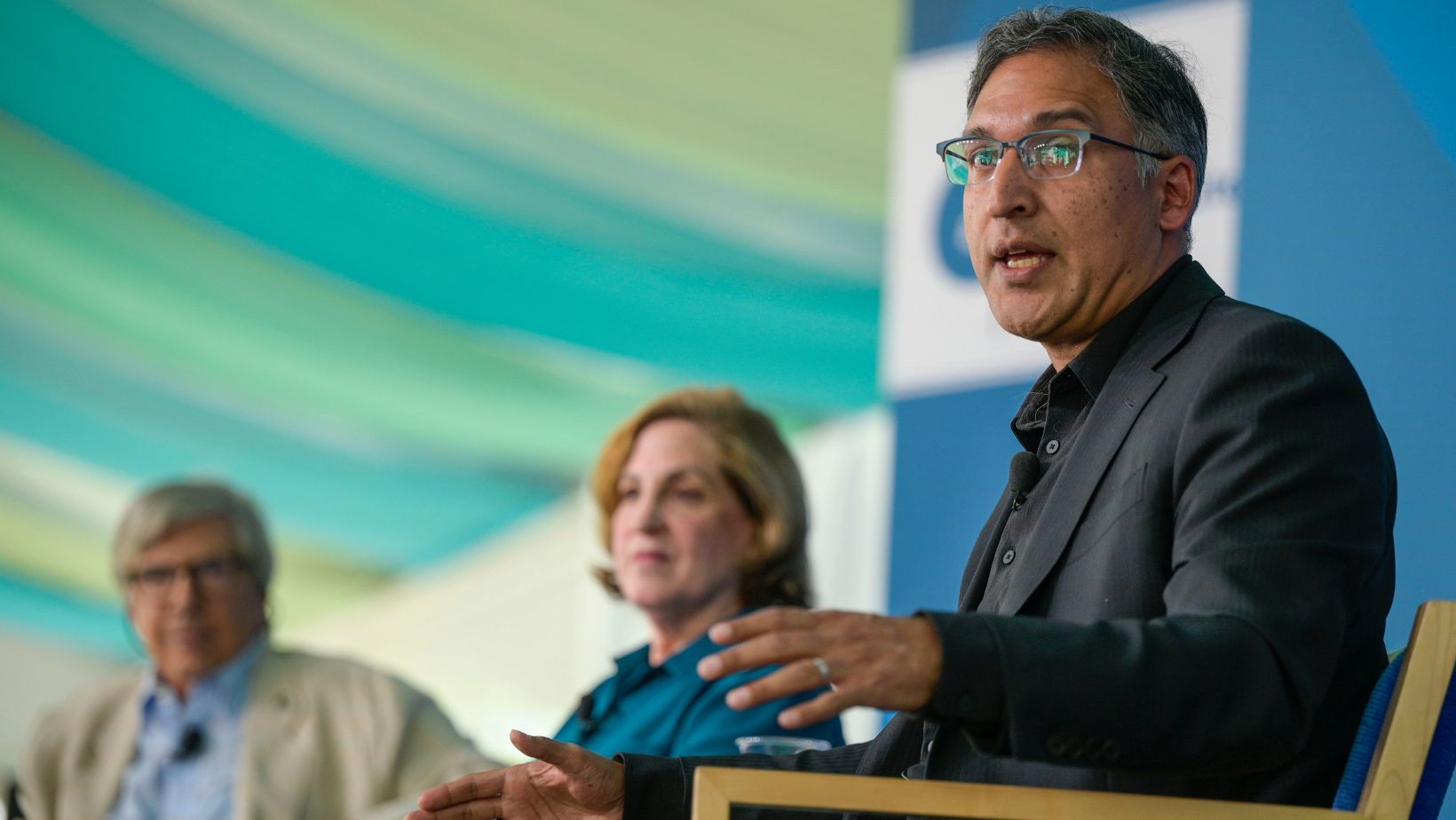“We are judged by what we write,” said Supreme Court Justice Anthony M. Kennedy on July 11, when he joined us in Aspen as the first speaker in a new summer series, the Susman Conversations on the Constitution and the Courts.* Responding to the standing-room-only crowd’s disappointment that he would discuss neither the Affordable Care Act decision nor the controversial ruling in Citizens United, Justice Kennedy explained that one distinguishing characteristic of the rule of law in the United States is that federal judges base their rulings on Constitutional principles, prior decisions, and the particular facts of each case, and provide written reasons for their holdings. As Justice Kennedy explained, it is then for the legal community, reporters, and ordinary citizens to review the reasoning, to criticize or to agree, and to hold the Court accountable. The Justice’s words were a lesson in civics, and it was the decline in civic knowledge among American adults and youth that formed a major theme of his remarks.
Kennedy’s appearance, in an interview conducted by the Institute’s Executive Vice President Elliot Gerson and Yale Law School Professor Akhil Amar, focused on his concerns about the rule of law at home and abroad. “Make no mistake,” said Justice Kennedy, “the rest of the world is watching, and the verdict is out in over half the world.” He used examples ranging from the lack of civic education in US schools to the erosion of civil discourse in the media and in our political institutions to judicial corruption in the former Soviet republics to make the point that we need active and engaged citizens to serve as the stewards of the Constitution.
As Justice Kennedy observed, the framers viewed the interplay of the three branches of government as an elegant relationship, akin to the physical equilibrium described in Newtonian physics. Knowledge of our Constitution and the balance among those three branches of government is learned, not inherited, he explained.
While the Justice focused his comments on improving the public discourse around how we govern ourselves, it is worth noting that the Court’s opinion in this Term’s Affordable Care Act case (in which Justice Kennedy joined the dissent) provides a valuable glimpse into the workings of that three-part balance. So in a few remaining paragraphs, I will accept the Justice’s invitation and explain why the ACA case is such a good illustration of his themes at Aspen.
The majority opinion by Chief Justice John Roberts is a remarkable window into the limits of what the judiciary can and will do to counterbalance actions of the other branches. Commentators have likened it to the decision in the Marbury v. Madison case, which established the Court’s power to review Congressional legislation even though the Constitution itself is silent on judicial supremacy.
The Roberts opinion notes at some length that members of the Court may disagree with the policy behind the ACA. They may view the law as ill-considered and counterproductive. But it is not their role to act as a super-legislature; instead it is to determine if the law is Constitutionally valid. The majority deftly found that while the individual mandate violated the Commerce Clause, the mandate, if viewed as a tax, fell within Congress’ broad taxing authority. Of course, both Congress and the President, prior to passage, denied that the mandate imposed a tax, and there are those who argue that the bill would never have passed during the Great Recession as a tax increase. But the Chief Justice and the majority opinion used what they wrote to say something else—that by applying the precept of the “saving construction” to rescue the law from an otherwise fatal flaw, they were reasserting the authority that Marshall created in 1803, nodding to the fact that the Court’s legitimacy, as the only unelected branch, is in part premised on its modesty when dealing with the most political of cases. In so doing, they deprived those who would seek to impugn the Court’s integrity of a key talking point, potentially healing a rift that began with the Court’s decision in Bush v. Gore, and reminded the world that in this country, the Court takes seriously its role as guardian of the Constitution, even insofar as it checks the power of the judiciary itself.
As Justice Kennedy said, this is just commentary—the opinion speaks for itself. If you are not a lawyer, and have never read a Supreme Court opinion, I invite you to try it now with the ACA case —you may disagree with me, and you may derive your own insights. Justice Kennedy, in his appearance at Aspen, and the Court, with its landmark ACA opinion, have provided Americans with a valuable civics lesson, focusing us on foundational principles about the balance between the branches and our own ongoing role in living and guarding our Constitution.
* The Susman Conversations, a project of the Justice and Society Program underwritten by Ellen Susman in honor of her husband Steven, a trial attorney active in social justice causes, will bring speakers to Aspen each summer for the next three years to discuss topics relating to the Constitution and fundamental problems of justice and fairness.

